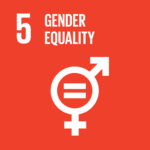Section 377A of the Penal Code, which criminalises gay sex between men, was repealed by the Singapore Parliament on Tuesday (29 November).
In a long-awaited legislative move, Singapore’s parliament on Tuesday (29 November) decriminalized gay sex and amended its constitution to maintain the status-quo definition of marriage.
RELEVANT SUSTAINABLE GOALS

The Repeal Of Section 377A
The repeal of Section 377A of the penal code, and the introduction of a new Institution of Marriage clause in Singapore’s constitution, will take effect after the bills receive presidential assent. In addition to preventing legal challenges to the existing definition of marriage, the amendment makes marriages between man and woman enforceable. Several government officials have stated that the dual legislative moves are the most effective way to deal with the repeal of the colonial-era law, which had not been enforced for years but was a source of frustration for the LGBTQ community.
“The time has come for us to remove Section 377A"
K. Shanmugam (Law and Home Affairs Minister - Singapore)
The constitutional amendment saw 85 MPs vote in favour. Progress Singapore Party’s Non-Constituency MPs Leong Mun Wai and Hazel Poa voted against the amendment, while WP’s Sylvia Lim and He Ting Ru abstained. Nominated MPs are not allowed to vote on constitutional amendments.
In a two-day parliamentary debate, ministers said the majority of Singaporeans supported repealing Section 377A, but they also preferred keeping the traditional definition of marriage.
“The time has come for us to remove Section 377A,” said the Law and Home Affairs Minister K. Shanmugam, who had spearheaded a months-long public outreach effort over the matter.


